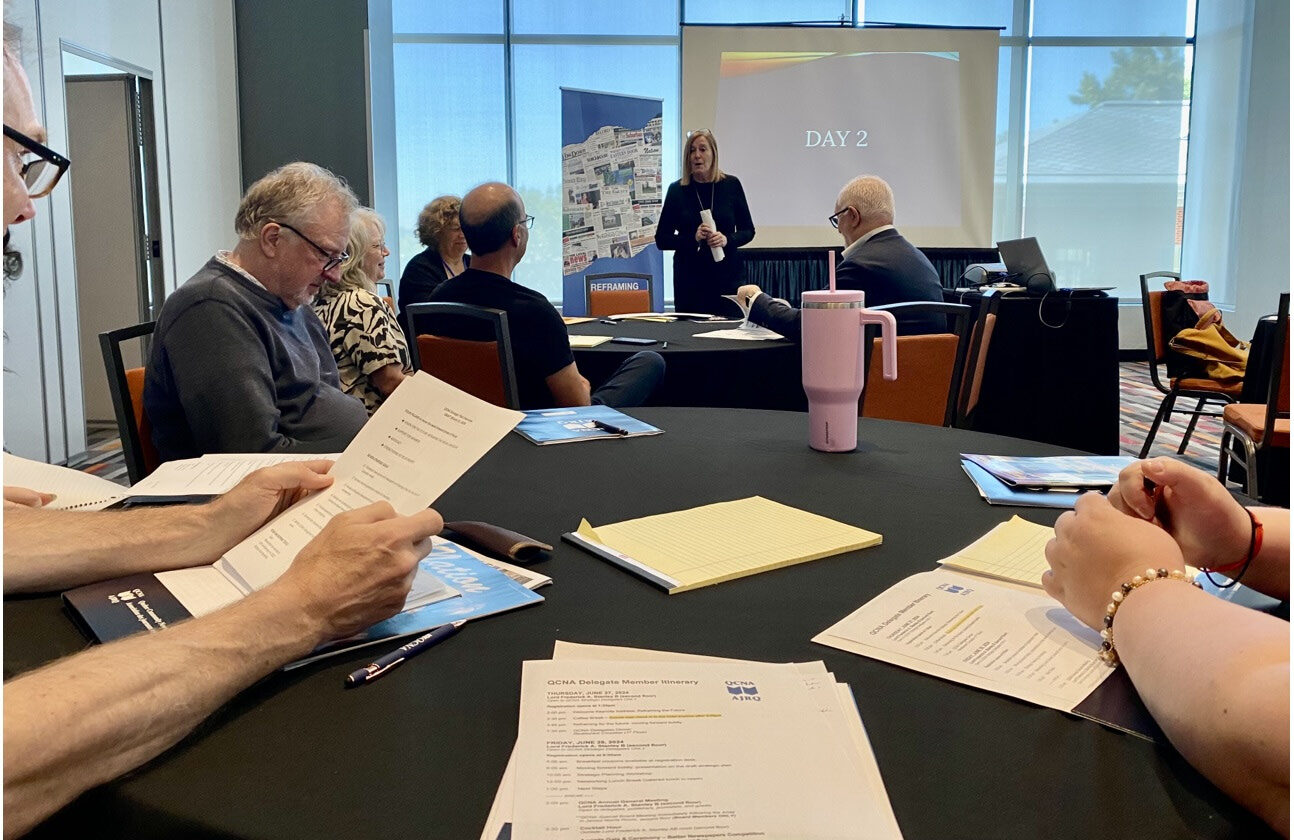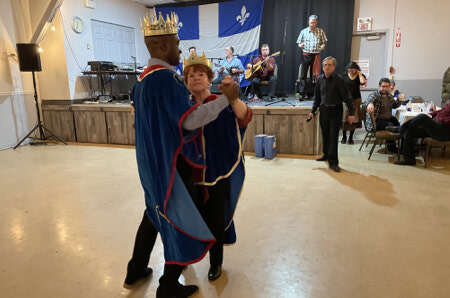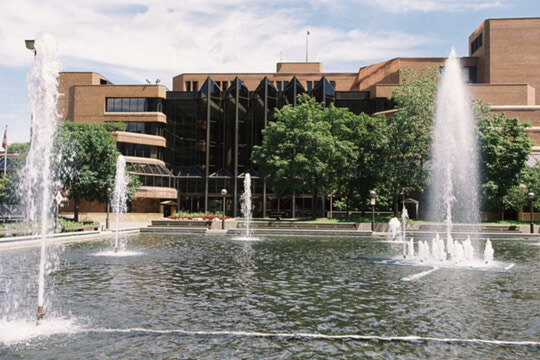Brenda O'Farrell advocates for a new era in community journalism
Tashi Farmilo
Brenda O'Farrell, president of the Quebec Community Newspapers Association (QCNA), is charting a bold course for the future of journalism, especially within Quebec’s English-speaking regions. With decades of experience spanning local journalism to senior editorial roles at major media outlets, O'Farrell envisions a future where hyperlocal journalism thrives, even as mid-sized regional papers face significant challenges.
O'Farrell highlights a crucial shift in the media industry: the decline of traditional mid-sized newspapers like the Montreal Gazette and the Ottawa Citizen. She notes that these papers are stuck in a difficult position. “They are too big to be in print and too small to be online only,” she explains, pointing out the struggles they face in adapting to the new media landscape. As the digital era reshapes the industry, these papers find themselves vulnerable, trying to compete in an increasingly global marketplace.
In stark contrast, O'Farrell sees a bright future for hyperlocal newspapers that cater specifically to the needs of their communities. She believes these publications offer something unique: in-depth, locally relevant content that large digital platforms cannot replicate. “The bright light will be in what I call hyperlocal media,” she says, emphasising that these smaller, community-focused papers are well positioned to thrive by doing things differently than in the past.
O'Farrell elaborates that the success of hyperlocal newspapers lies in their ability to deeply engage with their audience. Unlike larger outlets that serve a broad and often impersonal readership, hyperlocal papers are closely connected to the communities they serve. “These newspapers are not just reporting the news; they are part of the community’s fabric,” she explains. They reflect the concerns, stories, and voices of local residents in ways that national or international platforms cannot.
O'Farrell is clear that community newspapers must evolve beyond simply filling pages with content to drive ad revenue. Instead, they should focus on high-quality, investigative journalism that holds local governments and institutions accountable. “You have to provide news, and the quality of your writing and reporting and your research has to be on par with what you would find traditionally in the big papers,” she asserts. “You have to step up your game.”
Despite the ongoing digital shift in the industry, O'Farrell argues that the future of these newspapers remains firmly rooted in print. “Their future is print,” she insists, noting the unique value of a physical newspaper in a community—whether it’s delivered to doorsteps, available in local shops, or read at kitchen tables. This tangible presence fosters a connection between the community and the news it cares about.
For O'Farrell, this commitment to quality, coupled with a strong print presence, will ensure the survival and success of hyperlocal newspapers in the years to come. “These papers have to be more than just vehicles for ads or announcements; they have to be essential to the lives of the people they serve,” she says. “That’s the future I see for hyperlocal media—a future where these newspapers are not just surviving, but thriving as vital parts of their communities.”
Her own ventures, such as The 1019 Report and The 1510 West, embody this model of hyperlocal journalism. These newspapers are dedicated to serving specific regions, offering in-depth coverage of issues that directly impact the daily lives of their readers. “We are focused on covering the news that residents who live within these regions need to know,” she explains. “We dig into the reports, hold these councils accountable, and find out what’s going on.”
O'Farrell also advocates for a revised business model for community newspapers, one that is sustainable and not overly dependent on traditional revenue streams. She champions a model that emphasises subscription-based revenue and community support, where readers become stakeholders in the success of their local news outlet. “We’re not looking to get richer; we just want it to be sustainable,” she says. “If you create credibility within your community, people will subscribe.”
In this new landscape, O'Farrell believes that community newspapers can fill the gap left by larger media companies, which increasingly focus on national and international stories. “If you don’t support local media, more than half the country will not have any media,” she warns.
By embracing this new model, O'Farrell believes that community newspapers can continue to play a vital role in the media landscape, ensuring that local news remains a cornerstone of informed citizenship. “We are the fourth estate,” she concludes. “We are part of the democratic process. That’s why we need to survive.”
Photo caption: Brenda O'Farrell, president of the Quebec Community Newspaper Association addressing Quebec local newspaper publishers and workers at the strategic planning session in Montreal, June 2024.
Photo caption: Lily Ryan






